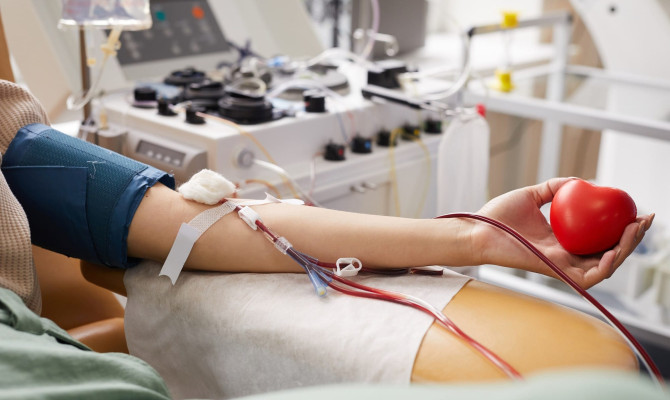Erythema In The Antrum: Symptoms, Causes & Management

- Erythema
- 20 Oct 2023
Introduction
Erythema in the Antrum
The gastric antrum plays a crucial role in the many complexities that make up the complex topography of the human digestive system. Nestled within the stomach, this region is not immune to the subtleties of health and disease. Erythema, a term often associated with redness or inflammation, can manifest within the antrum, presenting various challenges and considerations.

In this article, we will explore the anatomy of gastric antrum, unravel the various causes contributing to erythema, and navigate the clinical landscape of symptoms and diagnostic methodologies. We will scour the intricate web of conditions associated with an antrum shedding light on both common culprits and more elusive triggers.
What is Erythema in the Antrum?
- It refers to redness or inflammation in the mucus membrane lining of the gastric antrum, a section of the stomach.
- This condition can be associated with various factors such as infections, inflammation, irritants, toxins, or autoimmune processes. 1 Introduction | Researched based study from National Institutes of Health
Symptoms
Symptoms of Erythema in the Antrum
- Abdominal discomfort
- Indigestion
- Nausea and vomiting
- Changes in appetite
- Gastrointestinal bleeding
Symptoms of erythema in the endometrium might vary, although the following are usually present:
- Individuals may experience general discomfort or pain in the abdominal region.
Indigestion
- Bloating, gas, or a sense of fullness may be present as symptoms.
Nausea and vomiting
- Erythema in the antrum can occasionally cause nausea and, in more extreme circumstances, vomiting.
Gastrointestinal bleeding
- In more advanced cases, there may be science of gastrointestinal bleeding can manifest as dark, tarry stools or blood in vomit.
Causes
What Causes Erythema in the Antrum?
- Gastritis
- H. pylori infection
- Irritants or toxins
- Autoimmune gastritis
- Reflux disease
- Medications
- Infections
- Stress
Finding the underlying reason is essential for effective treatment because it might have a variety of origins. Some common causes include:
Gastritis
- Inflammation of the stomach lining, including the antrum, can lead to erythema.
- This information may be caused by infections such as H. pylori, irritation from medication, alcohol, or autoimmune reactions. 2 Causes| Researched based study from National Institutes of Health
H. pylori infection
- The stomach lining is known to become infected by Helicobacter pylori, which is also a common cause of gastritis and erythema. 3 Causes | Researched based study from National Institutes of Health
Irritants
- Exposure to certain returns of toxins, whether through ingested substances or as a result of another medical condition can cause inflammation and erythema in the antrum. 4 Causes | Researched based study from National Institutes of Health
Autoimmune gastritis
- In rare instances, the immune system of the body mistakenly targets the stomach lining’s cells, causing inflammation and erythema. 6 Causes | Researched based study from National Institutes of Health
Reflux disease
- Stomach acid can flow back into the esophagus as a result of gastroesophageal reflux disease, potentially causing discomfort and inflammation. 5 Causes | Researched based study from National Institutes of Health
Medication
- Some medicines, particularly non-steroidal anti-inflammatory drugs, might aggravate inflammation. 4 Causes | Researched based study from National Institutes of Health
Infections
- Apart from H. pylori, other conditions affecting the stomach can contribute to it.
Stress
- While the relationship between stress and gastric conditions is complex chronic stress may influence inflammation in the digestive system.
Functions
Functions of the Gastric Antrum
It is located below the pylorus in the lowest portion of the stomach. A thicker muscular wall characterizes it compared to other parts of the stomach. This muscularity is essential for the mixing and grinding of food.
Functions:
Pyloric pump
- It serves as a reservoir for food before it is gradually released into the small intestine through a controlled opening called the pyloric sphincter.
- This allows for optimal digestion and absorption.
Mechanical digestion
- The mechanical breakdown of food particles is aided by the muscle contractions in the antrum.
- This process is crucial for action and absorption in the gastrointestinal tract.
Mucus secretion
- The lining of the gastric antrum secretes mucus, which helps protect the mucosa from the stomach’s acidic environment.
- Additionally, it promotes the easy passage of food through the digestive tract.
Hormone secretion
- They release hormones that play a role in regulating digestive processes.
- This happens in response to the presence of food, stimulating gastric acid secretion and enhancing gastric motility. 7 Functions | Researched based study from National Institutes of Health
Diagnosis
Diagnosis of Erythema in the Antrum
Medical history
- Your healthcare provider will enquire about your symptoms, their duration of any relevant medical record, including medications and lifestyle factors.
Physical examination
- To assess stomach discomfort, inflammatory markers, and other relevant indicators, a physical exam may be conducted.
Endoscopy
- Endoscopy is a component of the diagnostic process. To view the stomach and antrum’s interior, a tube containing a camera is placed through the mouth. This allows direct observation of the mucosa and the presence of erythema.
Biopsy
- A biopsy may be collected during endoscopy for additional microscopic inspection.
- This helps determine the cause of erythema, such as infection, inflammation, or other conditions.
Laboratory tests
- Blood tests, including tests for helicobacter calorie infection or markers of inflammation may be conducted.
Imaging tests
- In some cases, imaging studies like CT scan, abdominal ultrasound may be ordered to assess the structure of the digestive organs
Breath test
- This might be used to detect the presence of helicobacter pylori a typical bacterium associated with gastritis. 9 Diagnosis | Researched based study from National Institutes of Health
Treatment
How do you Treat Erythema in the Antrum?
The underlying cause discovered through diagnosis determines the course of treatment for erythema in the antrum. Here is the general approach is based on common causes:
Gastritis
- Medications: H2 blockers or proton pump inhibitors are examples of drugs that can lessen gastric acid.
- Antibiotics: If the problem is bacterial, an antibiotic treatment may be advised.
- Avoiding irritants: Steer clear of irritants alcohol, hot foods, and NSAIDs (non-steroidal anti-inflammatory medicines) fall under this category. 2 Treatment | Researched based study from National Institutes of Health
Helicobacter pylori infection
- Antibiotics: Particular types of antibiotics are recommended to get rid of the illness.
- Proton pump inhibitors: these are used to reduce stomach acid. 3 Treatment | Researched based study from National Institutes of Health
Autoimmune gastritis
- Immune system modulators: Medications that modulate the immune system may be prescribed to manage autoimmune reactions.
- Vitamin B12 supplementation: Since autoimmune gastritis can affect B12 absorption, supplementation may be necessary. 6 Treatment | Researched based study from National Institutes of Health
Symptomatic relief
- Medications such as antacids or medicines that catch the stomach lining may be recommended.
- Dietary changes, such as avoiding trigger foods, can help reduce symptoms. 8 Treatment| Researched based study from National Institutes of Health
Lifestyle modifications
- Adopting a healthy lifestyle, including managing stress, regular exercise and maintaining a balanced diet can contribute to overall digestive health. 8 Treatment | Researched based study from National Institutes of Health
Prevention
Prevention of Erythema in the Antrum
While some causes of erythema in the antrum may not be entirely preventable adopting specific lifestyle measures can contribute to digestive health and reduce the risk of inflammation.
Healthy diet
- Eat a healthy, balanced diet that places a focus on produce, whole grains, lean proteins, and fruits and vegetables.
- Limit the intake of spicy, greasy, fried foods and excessive caffeine, which can irritate the stomach lining.
Hydration
- Be sure to drink enough water. Water keeps the mucosa membranes wet and aids in the digestive process.
Avoiding irritants
- Limit non-steroidal anti-inflammatory drugs as they can contribute to gastric irritation.
- Moderate alcohol consumption and avoid tobacco products.
H. pylori prevention
- Observing proper hygiene because H. pylori is frequently transmitted through tainted food or water.
- Ensuring proper food safety practices, particularly when traveling to areas where the infection is more prevalent.
Stress management
- Adopt stress-reducing techniques such as regular exercise or yoga.
- Ensure adequate sleep to support overall well-being.
Medical follow up
- Attend regular checkups and screenings, especially if you have a history of gastrointestinal issues or are at a higher risk. 8 Prevention | Researched based study from National Institutes of Health
Prognosis
Prognosis of Erythema in the Antrum
The amount of the damage and how it will react to immune-modulating drugs will determine the prognosis.
Gastritis
- Acute gastritis often responds well to treatment and symptoms can improve quickly.
- Chronic gastritis may require ongoing management but can usually be controlled with medications and lifestyle changes.
H. pylori infection
- Prompt and effective treatments, which typically involve antibodies, the prognosis is generally reasonable.
Autoimmune gastritis
- The management of autoimmune gastritis involves long-term care. The amount of the damage and how it will react to immune-modulating drugs will determine the prognosis.
Complications
- In some cases, complications such as gastrointestinal bleeding or ulcers may arise. Timely identification and management are crucial for a favorable prognosis.
How long does erythema in the antrum last?
The time frame can range from a few weeks to several months, and continued inflammation control treatments may be necessary.
Acute conditions
- It may resolve relatively quickly with appropriate treatment if it is due to an acute reason, such as a brief infection or irritation. This could be a matter of days to weeks.
Chronic conditions
- Chronic conditions such as chronic gastritis or autoimmune gastritis may require longer-term management.
- The time frame can range from a few weeks to several months, and continued inflammation control treatments may be necessary.
Response to treatment
- The responsiveness to treatment plays a crucial role. If the root cause is found and quickly and successfully fixed.
Individual variability
- Individuals can vary in their response to inflammation and treatment. Some experience a quicker resolution, while others may require more time.
Any feedback on this article?
 This Articles content was accurate
This Articles content was accurate Very Informative Article
Very Informative Article I have a question or a comment
I have a question or a comment
 This article contains inaccurate content
This article contains inaccurate content This article was not helpful
This article was not helpful I have a question or a comment
I have a question or a comment
We appreciate your helpful feedback!
Checkout our social pages
References
-
National Institutes of Health
Introduction
-
National Institutes of Health
Causes | Treatment
-
National Institutes of Health
Causes | Treatment
-
National Institutes of Health
Causes
-
National Institutes of Health
Causes
-
National Institutes of Health
Causes | Treatment
-
National Institutes of Health
Functions
-
National Institutes of Health
Treatment | Prevention
-
National Institutes of Health
Diagnosis



































